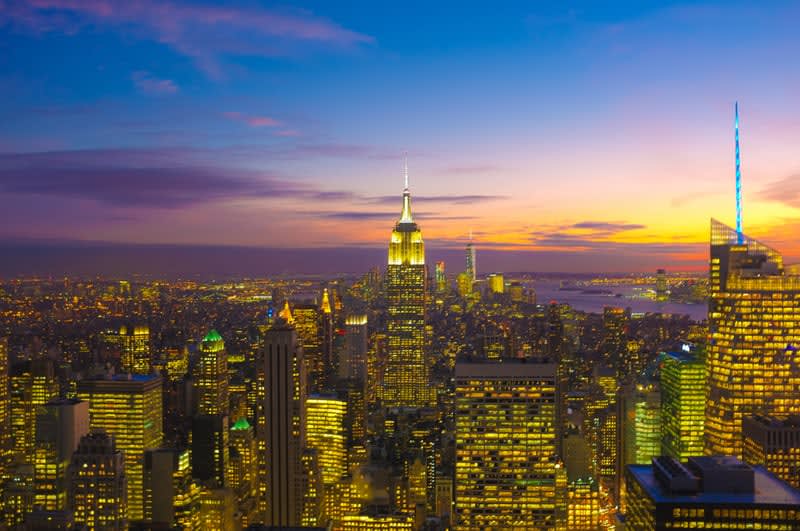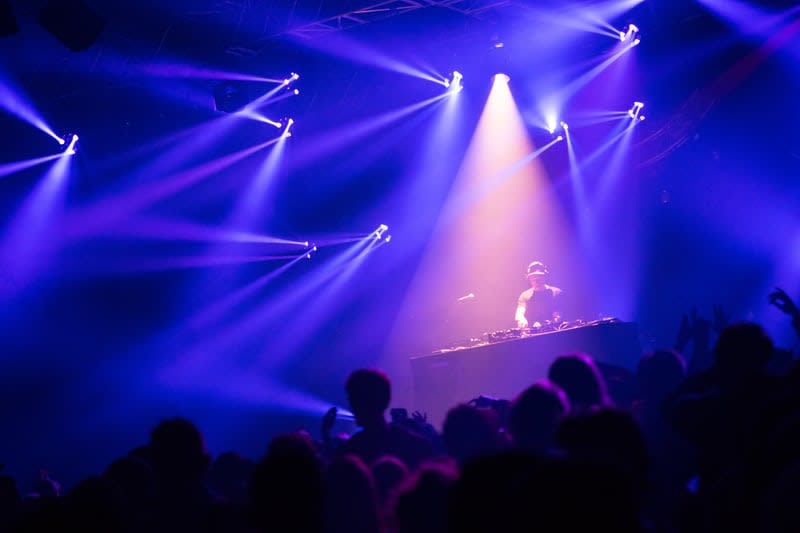BlogHow to Get Around in NYC
One city, 8 million residents, countless opportunities to get lost. Chances are, unless you know New York City very well, you will find yourself lost or on the wrong path once or twice. Don't beat yourself up if that happens to you, even native New Yorkers take the wrong train or walk in the wrong direction on occasion. To minimize the amount of time you waste getting lost, it's a good idea to get familiar with the plentiful transportation options New York City has to offer. [spacer height="20px"] The New York City Subway [caption id="attachment_1195" align="aligncenter" width="1051"] 7 Train in Queens | Photo by @nyclovesnyc[/caption] By far the most efficient way of getting around is the New York City Subway. Though the intricate web of colors and letters and numbers may seem daunting, this trusty old system will take you pretty to and from pretty much every corner of New York City. The NYC subway is one of the oldest in the world, and frankly, it shows. The vestibules are often smelly, dirty and congested and the old-fashioned trains are often late, or in desperate need of repair. Despite this, Most New Yorkers use the subway every day for their commute in place of driving, and you should too. Follow alert.mta.info for current delays or reroutes. The best way to navigate the subway is to get really familiar with the infamous Subway Map. This work of art will tell you everything you need to know, as long as you know roughly where you are and where you're going. Once you have found your destination stop and identify the line you have to take, you have to pay attention to whether the train is going Uptown or Downtown. The Uptown and Downtown terms are relative to where you currently are, typically if you're heading North (or to the Bronx or Queens), take the Uptown train and if you're headed South (or to Brooklyn), take the Downtown train. For easy navigation, you can pick up a hard copy of the map at most subway stations, or you can download it onto your phone. Several handy apps are also available, if you like to get thorough. If you're unsure about local customs, please familiarize yourself with Subway Etiquette. Keep in mind that each single ride on the subway is $3, or $2.75 with a preloaded MetroCard. If you're here for a while, you can get an unlimited weekly MetroCard for $32 or a monthly for $121. A new physical card will run you $1. [spacer height="20px"] Municipal Buses [caption id="attachment_1197" align="aligncenter" width="1295"] MTA Bus Map[/caption] Much like the subway, the municipal buses are run by the MTA (Metropolitan Transit Authority). They are available in every borough and offer transportation to some areas the subway just doesn't reach. For most MTA buses, you can use the same MetroCard you purchased at the subway station (Express buses do not accept unlimited MetroCards). Unlike the Subway, the buses actually operate on a schedule decently well (many New Yorkers may disagree with this statement). Again, all you really need here is the schedule and a Bus Map and you're good to go! Unlike the subway, your phones will work here the whole time. [spacer height="20px"] Citibike (and other bike rentals) [caption id="attachment_1198" align="aligncenter" width="993"] Citibike rack | Photo via Siegel+Gale[/caption] Biking around New York has become not only a popular pastime, but also a popular mode of transportation. Health/earth conscious New Yorkers have opted for two wheels in place of cars and congested subways. If you don't own a bike, or for whatever reason can't ride yours, there are plenty of options out there. Perhaps the most popular is Citibike, a bike sharing program, available all over the city, offering short-term bike rentals. Citibike offers either yearly membership, or a day pass for short-term visitors. With the day pass, you can ride as many times as you want, for $12. Remember that you have 30 minutes before you have to dock again. Download the Citibike app to get information about the closest docking stations, including real-time availability map. If you would rather get a better bike for a rental, without being limited to the 30-minute timeline, you can try Central Park Sightseeing, Central Park Bike Rent or Blazing Saddles. Blazing Saddles offers cruiser rentals down at South Street Seaport, and pier 84, while the other two companies offer rentals and tours in Central Park and Brooklyn Bridge. You can rent from a [spacer height="20px"] Hop on Hop off Bus [caption id="attachment_1199" align="aligncenter" width="1139"] Big Bus Tours[/caption] One of the most scenic and informative ways to see New York is on top of a Big Bus double-decker bus. These buses go around in several loops, have a tour guide and stop by most of the major attractions. You can either take Big Bus as a sightseeing tour and do the whole loop (each loop is about 2 - 2.5 hours) or hop on and off wherever is convenient for you. Keep in mind that the buses go in NYC traffic and can be quite slow. It's not the best transportation option when you're in a rush, but it's a great way to get acquainted with the city when you first arrive. Each New York Pass holder receives a free 1-day ticket, covering the Downtown, Midtown and Uptown loop. [spacer height="20px"] Foot [caption id="attachment_1230" align="alignright" width="1500"] The High Line | Photo via TimeOut New York[/caption] [spacer height="20px"] The most popular way of getting around in NYC, hands down, is walking. New York City is one of the most walkable cities, due to its concentration on a relatively small piece of land. You can technically walk the entire island of Manhattan in the span of a day. When visiting New York, it's a good idea to bring a pair of comfortable shoes, because unless you want to shell out big bucks for taxis, chances are you are going to do quite a bit of walking regardless. Manhattan above 14th St. is very easy to navigate on foot, because the streets are organized in a grid. 12 Avenues go North to South and 200 some streets cross them East to West. The boundary between East side and West side is 5th Avenue. Things get more complicated Downtown, where there is no street organization to speak of. It's recommended to fire up Google Maps while strolling below 14th St. [spacer height="20px"] New York Water Taxi (and other ferries) [caption id="attachment_779" align="aligncenter" width="2845"] New York Water Taxi[/caption] Most of New York City is essentially a cluster of islands, as such it is intertwined with a body of water, which presents a great opportunity for water-based transportation. There are many ferries servicing the New York City Waters, one of them is the New York Water Taxi, which offers stops all along the New York Harbor for you to hop on and off. For transportation to the Statue of Liberty and Ellis Island, use the Statue Cruises Ferry departing from Battery Park. For transportation between Brooklyn and Manhattan, you can use the East River Ferry, or the New York Water Taxi. If you're looking to sightsee on the river, check out the Best Cruises in NYC. [spacer height="20px"] Taxi One of the most quintessential transportation methods in NYC has to be the signature yellow cabs. Taxis are convenient, quick, and you take take them pretty much anywhere. The drawback is the cost, if you rely on taxis only for all your transportation needs, it'll cost you. Certain routes and times of day may also make you delayed due to traffic. Yellow cabs are most popular in Manhattan, but you can catch one in outer boroughs as well, except the cars will be green. New York City taxis are heavily regulated, so you don't have to worry about getting ripped off if you hail a cab, but please remember the etiquette attached to riding in a taxi. Regardless of how far you go, please remember to tip your cab drivers, preferably in cash. [spacer height="20px"] Uber (and other ride share programs) [caption id="attachment_1231" align="alignright" width="2000"] Uber | Photo via The Bubble[/caption] Uber has become insanely popular in recent years. Ride share programs have a few advantages over taxis. They tend to be cheaper, you can call them from an app, wherever you are, and you don't have to tip. You can call an Uber, Lyft or Juno, at any time, wherever you and and in a few minutes your car will be waiting for you. One draw back is that during peak time, in popular areas, Uber has surge pricing, so you can end up paying much more than you would in a taxi. If you need a ride on a Friday night in West Village, you may be better off hailing a taxi than calling an Uber. in outer boroughs, rude share apps are almost always more accessible.




